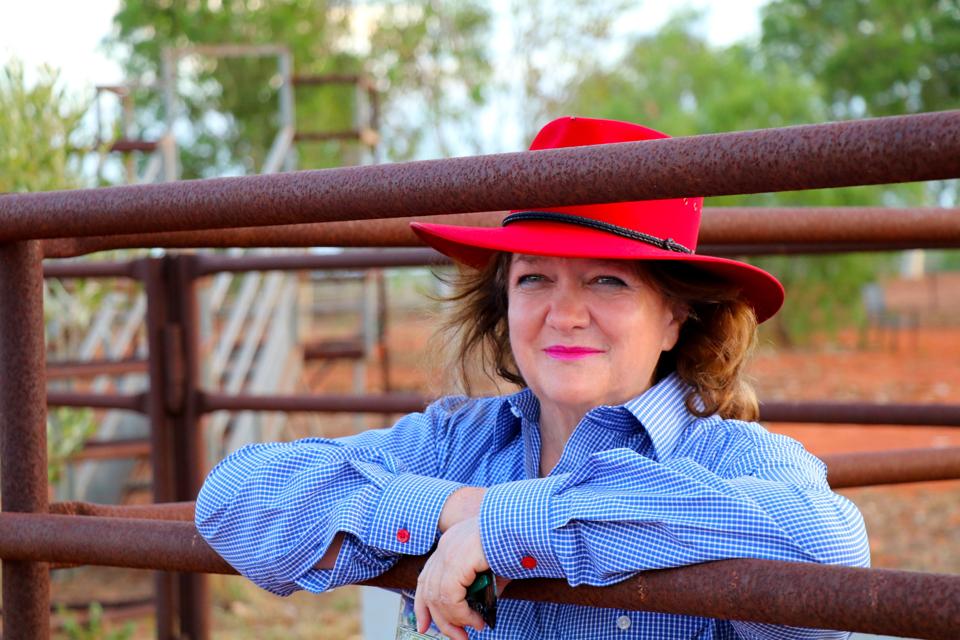Bankruptcy, scandal and stock crashes helped knock 189 people out of the three-comma club over the past year.

By Richard J. Chang, Forbes Staff
Itwas an up year for billionaires—with a record 2,781 of them, worth a record $14.2 trillion, on Forbes’ 2024 World’s Billionaires list—but not everyone is celebrating. An unlucky quarter of those on the ranking are poorer than they were in 2023. And 189 people fell below the $1 billion threshold, losing their membership to the three-comma club entirely.
These billionaire drop-offs include moguls behind some notable brands, such as Estée Lauder heir Gary Lauder; Hajime Satomi, former CEO of Japanese gaming company Sega Sammy; and David Tran, owner of the company behind Sriracha hot sauce.
The overwhelming majority of the losses came from China, one of the few huge markets to sputter in an otherwise-positive year amid fallout from slower economic growth, a property market glut, a decline in foreign investment and rising geopolitical tensions. China shed 133 billionaires (including Hong Kong and Macau) since last year’s list. That includes Tang Binsen, founder of the sparkling water company Chi Forest; Hui Ka Yan, chair of embattled real estate developer Evergrande Group; and copper and cable magnate Wang Wenyin, who was worth $19 billion a year ago but dropped from the list after a Chinese court froze his shares of metals company Amer International Group.
Rich List
The United States, meanwhile, which has the most billionaires of any country, only saw eight billionaires drop from the ranks, followed by Japan (6) and Russia (5).
Manufacturing barons were hit hardest, with 49 dropping of them losing their tenth digit over the past year, including machinery suppliers such as Shangji Automation’s Yang Jianliang and Russian fertilizer producer-turned-investor Pyotr Kondrashev. Healthcare, meanwhile, saw 21 members leave the list, including many Chinese pharmaceutical moguls and medical device makers. Despite the AI boom minting more than a dozen new billionaires and helping boost the fortunes of plenty of others, twenty tech billionaires still managed to fall off the list, such as Laurent Junique, founder of call center firm TDCX, whose share price is down 39% over the past year, and Jiang Long of Goertek Inc., which produces acoustic components for the likes of Apple and is struggling amid a downturn in consumer electronics demand.
An additional 32 billionaires died over the past year, including former Prime Minister of Italy Silvio Berlusconi, former President of Chile Sebastián Piñera, Intel cofounder Gordon Moore, investor Charlie Munger and singer-songwriter Jimmy Buffett.
Here are some of the highest-profile people who lost their billionaire status over the past year.
NET WORTHS ARE AS OF MARCH 8, 2024.

Wang Wenyin
Net Worth: Less than $800 million (down from $19 billion) | Source of Wealth: Real estate | Citizenship: China
In October, a Chinese court ordered a three-year freeze on Wang’s stake in metals giant Amer Holding following a series of contractual disputes. Wang, dubbed the “king of copper” stepped down as chairman of Shenzhen Amer, a subsidiary, in the ensuing days. With Wang holding 90% of the company, which accounts for the bulk of his wealth, the freeze knocks him off the billionaires list, and easily makes him the biggest loser in both percentage and dollar terms. It’s a sharp fall for the self-made entrepreneur who was worth $19 billion last year and China’s ninth richest. In March, a court from a separate province issued the same three-year freeze on Amer Holding. The company reportedly has a history of overpromising and underperforming on some of its projects. Wang did not respond to a request for comment by the time of publication.
Rene Benko
Net Worth: $0 (down from $6 billion) | Source of Wealth: Real estate, retail | Citizenship: Austria
The Austrian real estate tycoon lost his membership to the three-comma club late last year, after his real estate firm Signa Holding filed for insolvency amid a mountain of debt. Two key subsidiaries–Signa Prime Selection and Signa Development–which own stakes in New York’s Chrysler Building and the Park Hyatt Vienna, filed for insolvency shortly after. Based on the net asset values for Signa Prime, Signa Development and Signa Holding, Forbes has lowered his estimated net worth to nothing. Last month Benko himself filed for personal insolvency.
Hui Ka Yan
Net Worth: About $700 million (down from $3 billion) | Source of Wealth: Real estate | Citizenship: China
The poster child for China’s real estate crash, in March securities regulators fined his property developer Evergrande Group $580 million, and Hui personally $6.6 million, for defrauding investors and colluding with others to inflate the group’s revenues by 564 billion yuan ($78.4 billion). After a Hong Kong court approved Evergrande’s liquidation to pay back debts totaling around $300 billion, Hui’s net worth has plummeted to around $700 million, a pittance compared to his peak estimated fortune of $36 billion back in 2019. The disgraced magnate hasn’t been seen in public since September.

Byju Raveendran
Net Worth: $0 (down from $2.1 billion) | Source of Wealth: Education technology | Citizenship: India
Raveendran cofounded learning app Byju’s, once India’s most valuable startup, in 2011 and led its acquisitions of other education startups. In January, Byju posted its long-delayed results for the fiscal year ending March 2022, showing a net loss topping $1 billion. BlackRock slashed its valuation of Byju’s to about $1 billion, down from the firm’s $22 billion valuation in 2022, amid the company’s struggle to secure capital and allegations of accounting irregularities. Byju’s shareholders voted to oust Raveendran as CEO in February.
Osman Kibar
Net Worth: About $750 million (down from $1.7 billion) | Source of Wealth: Biotech | Citizenship: U.S.
Long gone are the days of the pandemic pushing up the value of healthcare firms like Kibar’s biotech business BioSplice Therapeutics. Forbes estimates that the company, which uses pre-mRNA splicing in osteoarthritic and oncology treatment, is worth $1.6 billion, far below the 2018 funding round that had pegged it at $12 billion. That’s enough to knock Kibar, who has an estimated 36% stake in the private firm, off the list.
Gary Lauder
Net Worth: About $960 million (down from $1.3 billion) | Source of Wealth: Estée Lauder | Citizenship: U.S.
A 36% drop in the share price of the world’s second biggest cosmetics company, Estée Lauder, dented the fortunes of Leonard, Ronald, Jane, William and Aerin Lauder—and knocked 1% shareholder Gary Lauder, the grandson of the company’s namesake founder, off the list entirely. Slow recovery in demand from mainland China and Asia travel retail sales since the Covid-19 pandemic has hurt demand, and the company noted in its latest earnings call that business has been disrupted in the Middle East after Hamas’ attack on Israel in October.

Luc Tack
Net Worth: Less than $900 million (down from $1.2 billion) | Source of Wealth: Textile, chemicals | Citizenship: Belgium
He’s CEO of chemical manufacturer Tessenderlo, whose shares are down 18% over the past year amid decreasing demand for agricultural chemicals. Swiss Fiber manufacturer Rieter filed a criminal complaint in 2021 against Tack, who at the time was a board member, claiming that he and another board member used internal information to make a competing offer to acquire components producing firms for Picanol Group, where Tack serves as managing director. Picanol denied that Tack participated in Reiter’s decisions to acquire the firms.
Ryan Breslow
Net Worth: Less than $100 million (down from $1.1 billion) | Source of Wealth: E-commerce software | Citizenship: U.S.
Once Silicon Valley royalty (Breslow changed his middle name to “King” in 2021), the cofounder and chairman of payment startup Bolt was one of the world’s youngest billionaires when investors including BlackRock and H.I.G. Growth valued Bolt at $11 billion in early 2022. It all unraveled over the following 18 months, between acrimonious lawsuits and early backer Activant alleging that Breslow forced out board members who questioned a plan for Bolt to reimburse Bolt for a $30 million loan he had taken out years prior. Bolt’s value crashed, and the company bought back shares from investors and employees at a 97% markdown in January, suggesting a $300 million valuation for the former decacorn.
This article was first published on forbes.com and all figures are in USD.


